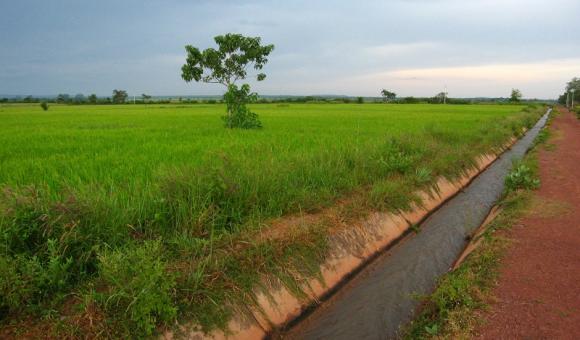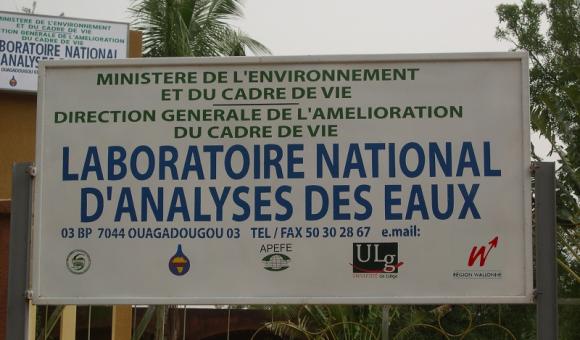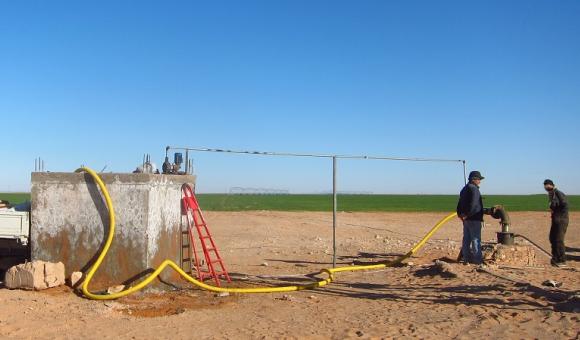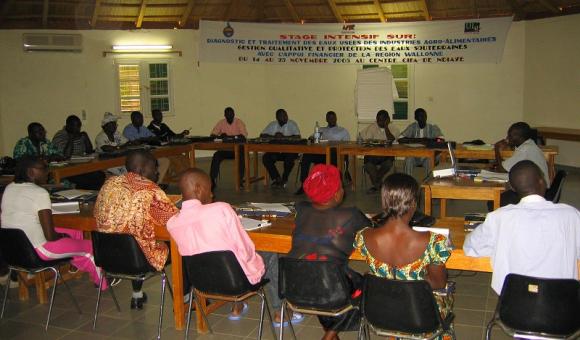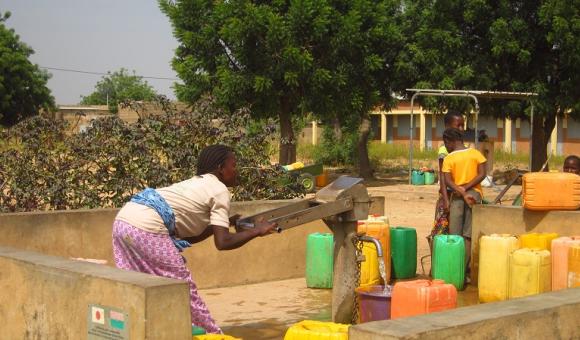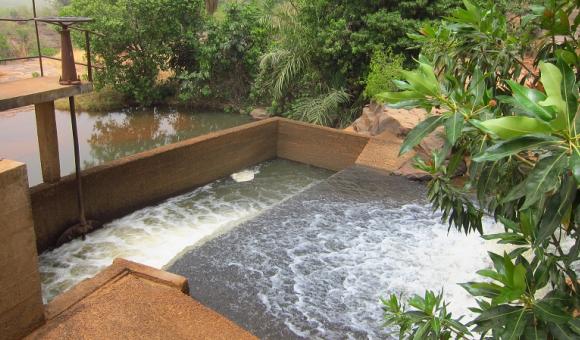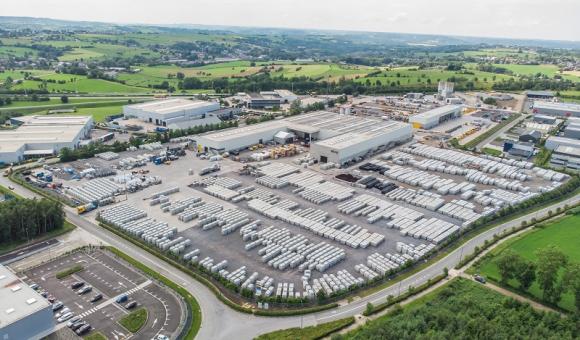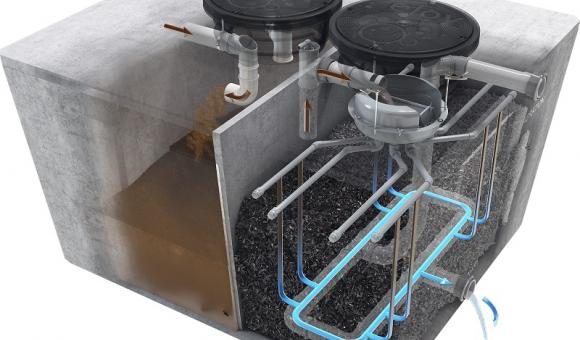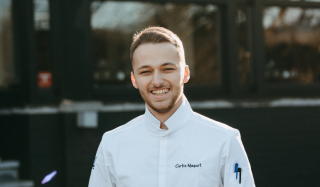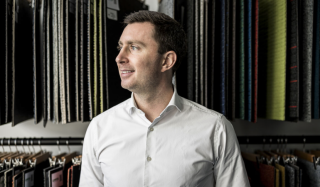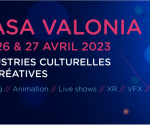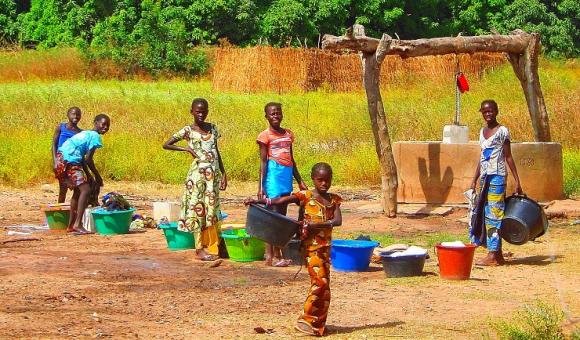
In Wallonia and Brussels, governments are required to monitor and achieve a series of objectives known [in French] by the acronym ODD. "The Sustainable Development Objectives (ODDs in French) are the compass for global development," explains Stéphan Plumat, director of APEFE (Association for the Promotion of Education and Training Abroad).
Where does the definition of Sustainable Development Objectives (ODDs) come from? “Historically, they go back to the 1990s. At the time, thirty years after the wave of independence in the so-called developing countries, the question arose as to the effectiveness of development cooperation. At the time, there was no sign of progress. The United Nations and its agencies were considering how to structure international aid and ensure unity of purpose. So at the beginning of the 3rd millennium, the "Millennium Development Objectives" (OMD in French), which will cover the period 2001-2015, were formulated”, recalls Stéphan Plumat, Director of APEFE, "In 2015, when the time comes to take stock of the OMDs, the ODDs that are binding on all countries will come into being. So development is no longer solely a matter for the countries of the South”.
What exactly are ODDs? "They are the compass of global development and are followed by all governments and major agencies. They’re are looking at 2030. In English, we speak of 'sustainable goals', i.e. 'sustainable' development in terms of resources. The ODDs are like a fabric, there are 17 of them and they interpenetrate. Example with ODD 4 and ODD 8. That is, education on the one hand and economic growth on the other. They overlap on a theme such as youth employability. This more systemic vision than the previous one also includes a methodological objective. It is ODD 17 which focusses on the quality of partnerships because, in order to reach the other 16 ODDs, we must all work together, move in the same direction, work in complementarity both within countries and co-operate with countries for optimal efficiency”.
Water in the Wallonia-Brussels Federation is a resource that has become a matter of expertise for a whole chain of public players and companies. Diving at the heart of expertise that is exported.
"The sixth ODD is about water”, says Stéphan Plumat. Water is one of the few natural resources that Wallonia can boast about. But it is not just any resource on a planet that is seeing global warming and will increasingly suffer water stress in the future. The Wallonia-Brussels Federation has developed expertise in the management of water resources, but also in distribution, management and purification. "There is in fact real Walloon expertise that we want to put to good use internationally, an uncommon strike force in terms of expertise but also training. It's a nugget that needs to be promoted," insists Stéphan Plumat.
"We have a great deal of gratitude for our long-term investment”.
Johan Derouane co-ordinates international co-operation programmes in the water sector for the Walloon government (SPW). His gaze is primarily retrospective: "In Wallonia, water was already a priority sector of international co-operation in the late 1990s, at the Directorate of International Relations. WBI has continued on an ongoing basis since its creation in 2008". Why has water historically been a priority for bilateral co-operation? "Walloon water resources are abundant, but subject to many pressures: their high level of exploitation and the stakes involved in their preservation have led us to develop a high level of technical expertise. Also, our management model has remained entirely public in a world tending towards the privatisation of water, which is increasingly scarce and therefore attracts the interest of our partners”.
In this global water "market" that is increasingly orientated towards commercialisation, the Walloon model inspires confidence: "We maintain privileged relationships with our partners in the countries in which we operate. There are no hidden agendas and this transparency makes for sustainability of partnerships with recipient countries”. Over time, the number of water-related co-operation projects has doubled or even tripled: "Unfortunately, the total budget for Wallonia-Brussels is not increasing, so we are moving more and more towards water to the detriment of other sectors. It is a strategic choice that can be found at world level: access to drinking water, irrigated agriculture for food self-sufficiency and water governance are major issues for the international community", Johan Derouane analyses.
The list of countries supported has changed little over time; rather, it has increasingly focussed geographically on historical partners such as Africa, including Burkina Faso and Senegal: "In the field of water, 80% of our focus is on Africa, while we have gradually withdrawn from Latin America in recent years. There is a desire to harmonise the list of partner countries with that of the federal co-operation (Enabel) with which we are naturally complementary, as they are more focussed on infrastructure and we are more focussed on resource management and training players in the sector”. These long-term partnerships make Wallonia-Brussels stand out: "At the Ministry of Water in Burkina Faso, for example, we are sitting at the table alongside the World Bank, which is contributing 350 million Euros over the next 5 years, whereas our contribution will not exceed one million over that period. But having been there since 1998, we have a great deal of recognition for our long-term investment”.
This long-term involvement especially leads to better ownership by recipient countries: "Partnerships between governments, resource operators, universities and research institutes give added value to what we do. This is typical for our model of cooperation, geared towards strengthening the capacities of our institutional partners and the associated funding of applied research programmes. We are in the relationship business. This is in sharp contrast to other approaches, which often boil down to the unilateral execution of a contract or consultancy assignment. Here, there is total involvement in the strengthened institutions", Johan Derouane is pleased to say.
"Real added value compared with other models of cooperation”.
All of the Walloon water stakeholders are involved in the project: public managers (SPW, SPGE), public operators (SWDE, intercommunal companies), universities, and the private sector (see our box on the Eloy Water company): "We realise that we can work together and that it is good for everyone," says Johan Derouane. Joost Wellens, expert in water management at ULiège, can only confirm: "Of course we have to remain modest compared with the annual budgets of French or German co-operation. But if you add up the investments of WBI and APEFE over 20 years of co-operation in Burkina Faso for example, we have nothing to be ashamed of: what we have done has made a real difference”.
What are the future challenges? "We are fully focussed on achieving ODD 6: water resources must be better managed. Everyone must be guaranteed access to (drinking) water," says the researcher. How does ULiège work to rise to them? "Whether in Morocco, Tunisia, Senegal, Benin, Vietnam or Haiti, we are there to train and learn together. The University is recruiting a local doctoral student who will also become a project manager. We can see that people thus trained and who become experts then go on to pursue their career in the department and share their knowledge with the country in the long term. This is a real added value compared to other co-operation models where international experts leave the country once they have completed their work", concludes Joost Wellens. "Here, knowledge endures”.
The Belgian group Eloy, with its Eloy Water subsidiary, is an unsung Walloon success story. Express presentation.
When you search for Eloy Water on the Net, you find two different websites. One ending in ".be" focussed on Belgian activities; the other ending in ".com" available in English. It is therefore understandable that this branch of the half-century-old Belgian family business Eloy, now run by the three Eloy brothers, will not hesitate to adapt its communication to the needs of anyone with whom it deals. And they are diverse: Australia, the Caribbean, France, the Lebanon, Mexico, New Zealand, Rwanda, Senegal, Slovenia and Sweden, for a total of 35 countries in which the company provides waste water treatment solutions. All of the technologies developed and all of the products marketed (in particular small and medium-sized waste water treatment plants) are manufactured in Sprimont near Liège, constantly seeking innovation and sustainability: "Whether on environmental or social aspects, there is constant strategic commitment to moving towards greater social responsibility at Eloy," explains Sandrine Pierret, the new marketing director. The first partnership with the University of Liège dates back to 1995 and led to the creation of Oxybee, a bacterial medium used in the treatment plants of the era. Since then, other key inventions have rewarded the efforts in applied research: Oxyfix, a micro-purification plant that can be found all over the world, or X-Perco, a compact filter designed to purify water. In the goals for the future: "Reducing our carbon footprint. As we transport a lot of parts and products from Belgium, we are keen to calculate and neutralise our impact, for example by financing the planting of trees in the countries in which we operate”.
By Charline Cauchie
Article from the W+B Magazine n° 148
Find the 'Water, source of life' campaign on Wallonia.be
